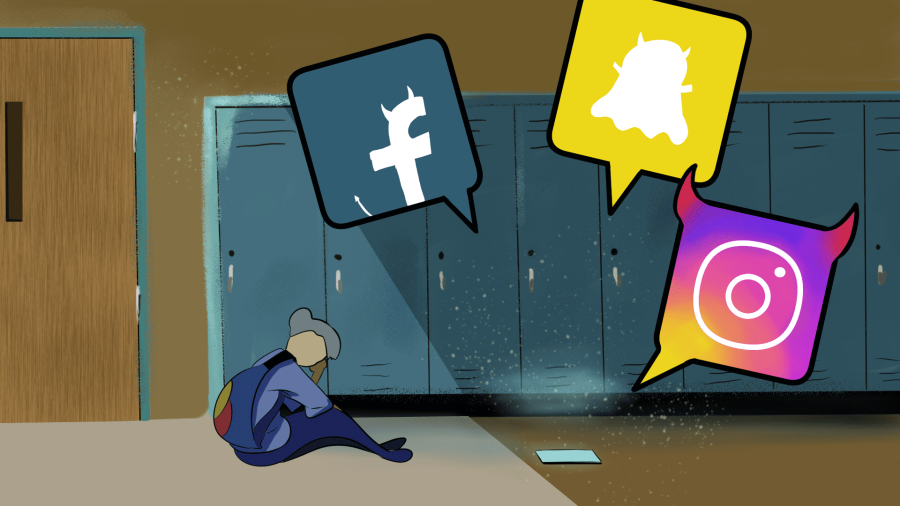Entering the fourth week of online classes and for most of us, with quarantine, it has been easier than ever to fall down the rabbit hole of social media. An advertising company called Obviously found that their Instagram campaigns have been receiving 76 percent more likes in the past two weeks, and TikTok activity has increased 27 percent in the last month.
Scrolling through the seemingly endless array of posts can feel inspiring and encouraging during these dark times, but it can also be overwhelming. Some people feel pressure for not being as productive as those who they see online, or feel anxious from reading constant news reports.
This is why it is more important now than ever for social media influencers and advertising companies to promote messages of authenticity and positivity. Although heavy, this burden is a necessary and critical one. A 2019 influencer marketing survey conducted by Rakuten Marketing, found that 89 percent of women and 83 percent of men would make a purchase based on an influencer’s endorsement. Additionally, “fitspiration” posts on social media platforms have proven to lead to varying levels of body dissatisfaction and facilitate “peer-based body comparisons”, according to a content analysis conducted by the Burnet Institute. This evidence makes it clear that the voices of influencers are valued in today’s society. People are willing to listen, so it’s important to make what they’re hearing authentic and honest.
Influencers and advertisements need to expose people to the idea that it’s okay to not be okay during this pandemic. Whether that be influencers being honest and realistic about their feelings and routines, or advertising companies promoting self-care products, those with large followings need to come together to foster a sense of community and camaraderie to help combat feelings of negativity.
The link between social media and poor mental health has been long established, and studies have found that spending too much time on these platforms can lead to anxiety, loneliness, and depression. Since social media activity is increasing with everyone on lockdown, it can be assumed that the correlating side effects will also increase. This emphasizes the importance of individuals and companies with large followings recognizing their influence and using it to reassure their viewers.
Mental health is already vulnerable during a period of quarantine, so it’s important that what people see on social media doesn’t worsen it even more. The Lancet, an online medical journal, conducted a study through a variety of online databases regarding the mental health impacts of being quarantined. Using data collected from the 2003 SARS outbreak, it found that of a study group of 1,057 people, over 20 percent reported fear, 18 percent reported nervousness, 18 percent reported sadness, and 10 percent reported guilt during quarantine. In addition, the study reported that some people developed worsening depression and/or anxiety that lasted post-quarantine.
Seeing as the SARS quarantine had such a profound impact on mental health and it was much lesser in severity than our current COVID-19 quarantine, with roughly 8,000 worldwide cases and 800 deaths, one can only imagine the effects that COVID-19 will have. In order to mitigate these long-term effects and make our current situation easier, it’s crucial for those with influence online to publicize the fact that taking care of one’s mental health is important and looks different for everyone, rather than trying to upkeep a facade.
Lynn Bufka, a clinical psychologist and senior director at the American Psychological Association reminds people to “be really clear that what you’re seeing on social media doesn’t reflect the reality for most people.”
It is important for people to do what makes them feel happy and calm, not what they feel pressured into achieving by influencers and advertisements. While some may be motivated to be productive and utilize their time at home when they see social media posts, others may feel overwhelmed and anxious. Influencers have the responsibility to use their platforms to spread positivity and hope; they should be vulnerable and honest with their followers, voicing their current realities rather than creating idealized ones. This is a traumatic time for some and a life adjustment for everyone; people need to remember that it is okay to not be fully functioning.
As Bufka says, “there’s no road map on how you manage a pandemic.” The responsibility to help convey this to society on a large scale is in the hands of those with influence and power, and if done right, this will allow for the united and supportive society that the world needs right now.
Artwork by Anthony Tran of the UCSD Guardian Art Department.




















